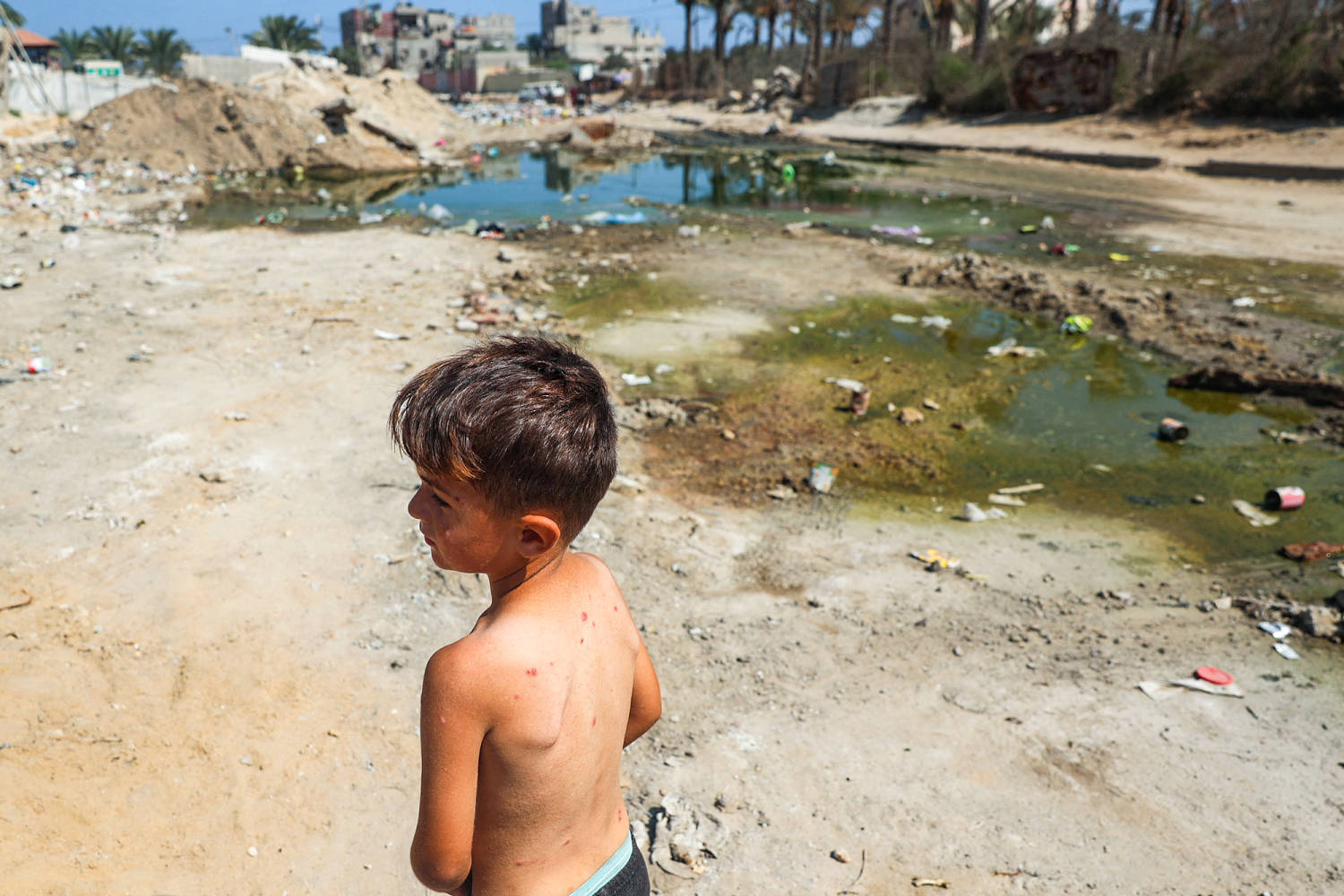Humanitarian groups and public health leaders around the world are extremely worried that polio may be spreading in Gaza, after tests found the virus in wastewater samples. The war-ravaged enclave is already afflicted by poor sanitation, a crumbling health care system and plunging vaccination rates — so there's little hope that it would be able to handle an outbreak of the highly contagious disease. “It would be a disaster,” said Dr.
Mithqal Abutaha, program manager of Project HOPE, a global health nongovernmental organization that runs clinics in the areas of Gaza where polio has been discovered in sewage. While no human cases of polio have been detected, it’s unclear whether doctors in Gaza have the resources to test for it. The Global Polio Eradication Initiative , part of the World Health Organization, said that 16 out of the 36 hospitals in Gaza are “partially functional” and that less than half of its primary care facilities are in use.

“The health care infrastructure is ruined,” Abutaha said. “There is no capability enough to control this outbreak.” Tests on wastewater samples taken at two sites in Gaza, Deir al-Balah and Khan Younis, were positive for circulating vaccine-derived poliovirus type 2, Ayadil Saparbekov, team lead for health emergencies at WHO in Gaza and the West Bank, said during a briefing Tuesday.
“WHO considers there to be a high risk” that the virus will spread “within Gaza and internationally if this outbreak is not responded to promptly and optimally,” Saparbekov said. The results of the wastewater samples were available on July 16, but those samples were taken on June 23 — a full month ago. “Imagine how much spread there could have been in that time,” said Sean Carroll, president and chief executive of Anera, a nongovernmental organization that provides humanitarian aid to the Middle East, including Gaza.
“It could be a lot worse.” The strain that was found in Gaza wastewater is linked to a polio vaccine that has not been used in the U.S.
since 2000, but is still used in other parts of the world. That vaccine, given orally, uses a weakened but live form of the poliovirus. That virus can be released in a person’s stool — an especially worrisome risk factor for an area in which sanitation has plummeted in recent months.
Israel cut supplies of water, electricity and fuel to the Gaza Strip after Hamas' Oct. 7 attack on Israel . Gazan children left vulnerable Immunization coverage against polio in Gaza had been robust prior to the war between Israel and Hamas that followed the attack.
In 2022, the polio vaccination rate in the occupied Palestinian territory (which includes Gaza and the West Bank), was at 99%, according to estimates from the World Health Organization and UNICEF . That percentage has since declined to 89%, the groups said. “There are now thousands of kids who remain vulnerable to getting infected to this particular strain,” said Dr.
Javed Ali, who heads the emergency response in Gaza for the International Medical Corps, a nonprofit humanitarian aid organization. “It’s an absolute nightmare.” On a call with the WHO and other humanitarian groups on Tuesday, Carroll said it was anticipated that 250,000 children ages 5 and younger in Gaza will need to be vaccinated to help curb a potential outbreak.
Those vaccines, which come in the form of oral drops, would need to be kept cooled. That’s another hurdle to overcome in an area with scant ways of fueling refrigeration systems. Saparbekov said WHO and UNICEF workers were scheduled to arrive in Gaza on Thursday to collect human stool samples as part of a risk assessment related to the discovery of the virus.
He said the assessment, which he hoped would be completed by the end of the week, would allow health officials to issue recommendations, “including the need for a mass vaccination campaign as well as what kind of vaccine should be used and what the age group of the population that will need to be vaccinated.” Polio vaccines are considered durable and extremely effective. The CDC recommends that children receive four shots : at age 2 months, 4 months, 6 to 18 months, and then around age 5.
Three doses are enough to confer at least 99% protection, and the fourth dose is meant to make that protection last a lifetime. Some people may need an additional booster later in life if traveling to countries where polio is common, or if they did not receive all of the doses as a child. Abutaha, of Project HOPE, said it was frustrating to witness the potential for widespread polio in Gaza.
“You know what is going to be happening in the next days or months, but you can’t do anything about it,” he said..



















